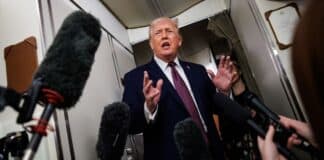Harvard University faces intense criticism following revelations that large numbers of Chinese Communist Party (CCP) officials have trained at its campus, particularly through the Kennedy School of Government. The trend has prompted concerns over national security, with critics arguing the university has become a de facto “party school” for China’s ruling elite. High-profile alumni include former Vice President Li Yuanchao and President Xi Jinping’s chief trade negotiator.
In response, the Trump administration implemented aggressive countermeasures. Secretary of State Marco Rubio announced stricter visa policies and pledged to revoke access for CCP-linked individuals. The Department of Homeland Security revoked Harvard’s certification to enroll foreign students, citing coordination with the CCP, though the university was granted time to appeal. Legal pushback followed, with a federal judge temporarily blocking the DHS action to avoid disrupting the lives of over 7,000 international students.
Congressional oversight has intensified. A House select committee is demanding transparency from Harvard regarding its relationships with CCP-affiliated individuals and programs. Conservative lawmakers warn of “dual-use” instruction, where skills taught to foreign officials may be redirected toward authoritarian governance.
This growing controversy underscores a broader concern: elite academic institutions may be compromising national security in the name of academic openness. Harvard’s situation could set the stage for future restrictions on foreign enrollment, particularly for nations deemed adversarial.





